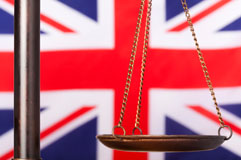 The question of whether or not UK human rights law should be watered down has now reached the point of very serious discussion, in the wake of the worst riots in England for over thirty years. Even before these violent outbursts in our cities, many people were claiming that human rights law had already gone too far. With the Prime Minister now advocating a serious departure from our existing human rights commitments, the next couple of years are likely to prove to be extremely interesting in this area of law.
The question of whether or not UK human rights law should be watered down has now reached the point of very serious discussion, in the wake of the worst riots in England for over thirty years. Even before these violent outbursts in our cities, many people were claiming that human rights law had already gone too far. With the Prime Minister now advocating a serious departure from our existing human rights commitments, the next couple of years are likely to prove to be extremely interesting in this area of law.
When you consider the fact that the UK actually ratified the European Convention on Human Rights (ECHR) back in the 1950s, in terms of new human rights law actually being introduced into our legal system, there has not been much of a change over the past half century. Okay, so The Human Rights Act 1998 sought to enshrine the provisions of The ECHR more firmly within our law, but if you sit down and compare the two pieces of legislation – they are actually pretty much identical.
Instead, it is the human rights lawyers that are thought to bear the majority of responsibility for taking many of the original provisions and intentions of The ECHR and manipulating them into protective shields for the criminals to hide behind. The Prime Minister, David Cameron, believes that human rights laws are responsible for a breakdown in society, and it would appear that this is the scapegoat being used to explain exactly why the English riots originated in the first instance.
Any sociologist and lawyer that is worth his or her salt will immediately realise that the issue goes much further than this, however. Many of us will feel that human rights laws have gone too far, but the articles of The ECHR are definitely unquestionable rights that were conceived shortly after one of the worst events of history this world has ever borne witness to: The Second World War. In many ways, The ECHR was a continent-wide pledge that European countries would endeavour to ensure that we never go back to such an ugly time in our past.
Sir Menzies Campbell (former Liberal Democrat leader) is concerned that we may well forget about the original intentions of The ECHR. He has stated that the provisions of The ECHR are our fundamental rights and that we should never be tempted to depart from them. This comes at a time when many Conservative MPs are looking at the possibility of repealing The Human Rights Act completely.
This does all seem to smack of extreme desperation. Yes, human rights laws have been permitted to be taken out of context at times in this country, and it does often appear to be for the wrong reasons. However, instead of considering repealing all such human rights laws, surely it would make far better sense to clarify and consolidate this area of law more clearly. Where human rights lawyers have managed to find loopholes in this law in the past, simply block these and make the provisions for each article of The ECHR set in stone and never to the detriment of the best interests of our judicial system and country in general.
The coalition government are contemplating the possibility of a new Bill of Rights for the UK; therefore, it will be interesting to see just how far the watering down of existing human rights laws is likely to go.

